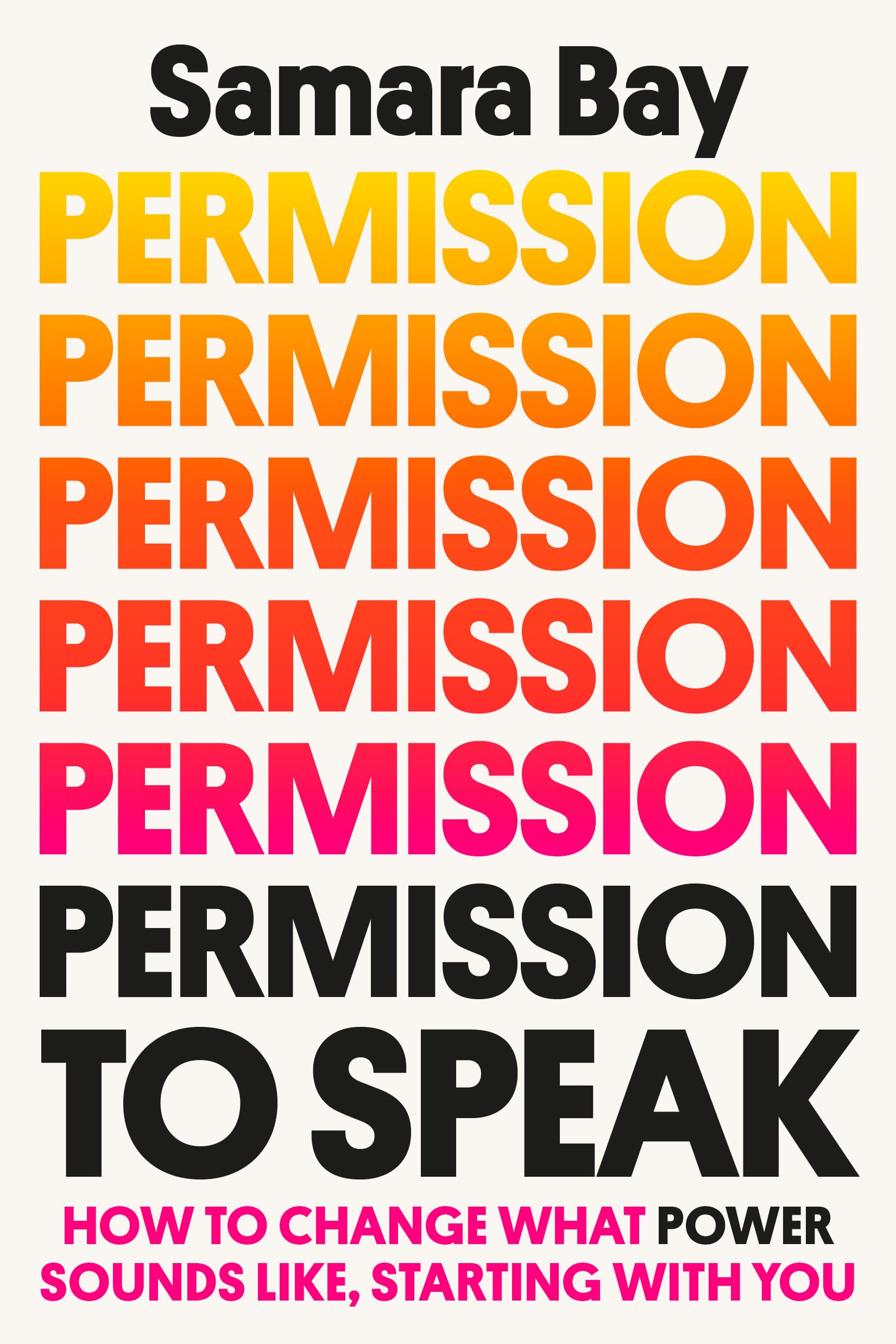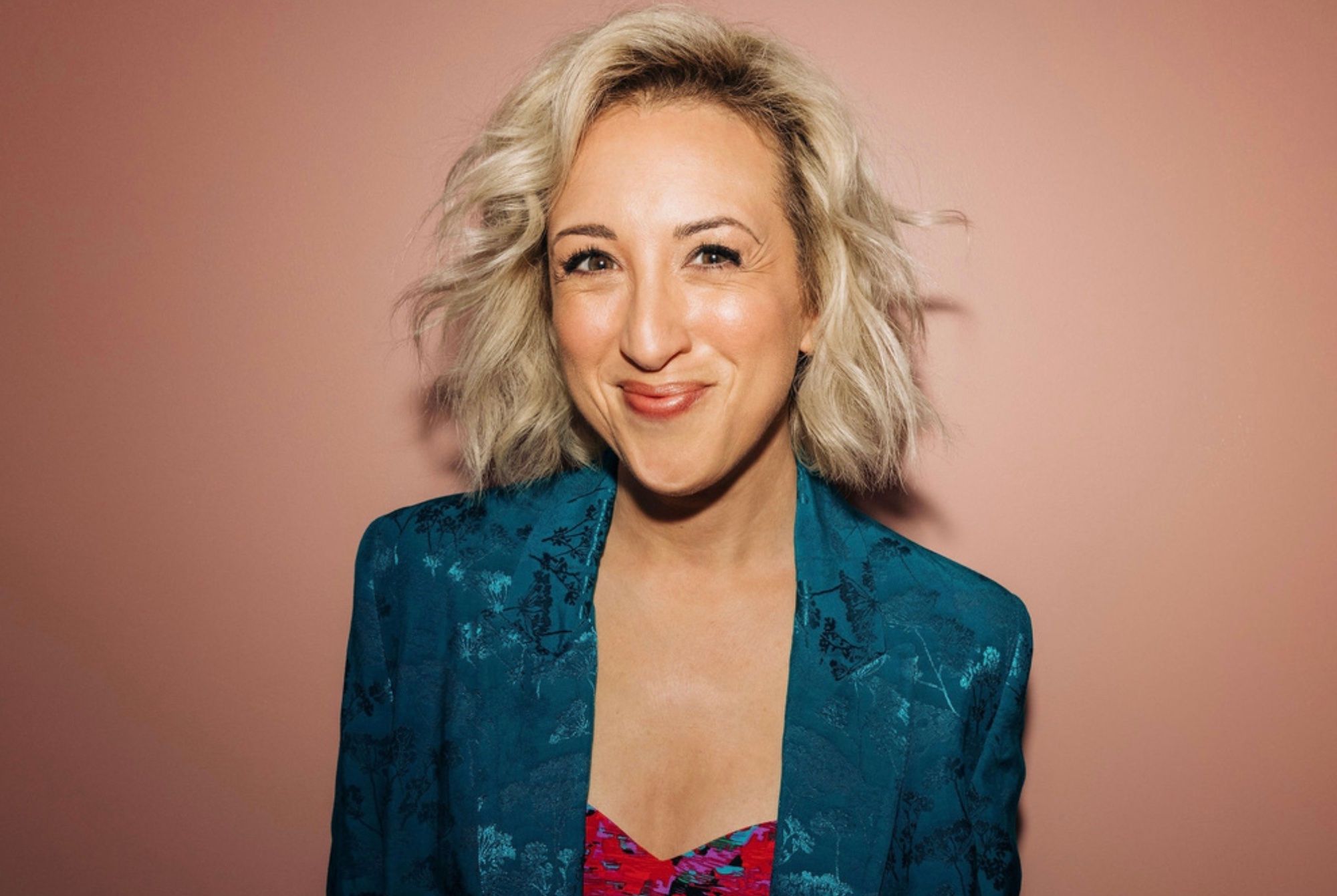Breaking the Cycle of Silence: Samara Bay Shows Us How to Say What You Want and Be Heard
So many of us know the feeling.
We’re in a high-stakes situation—say, in a meeting, on a stage, or across from a partner—and we want to be heard. We want to be poised and sharp. Commanding and respected. But when we go to talk, everything falls apart. Or at least, we think it does.
Samara Bay is here to tell us differently. A speech and communication expert revered by big names in Hollywood and politics, Bay has a talent for helping people find their true voice—both literal and figurative—so we can speak with a conviction and warmth that captivates hearts.
The operative word is true. Instead of perpetuating the old ideals of public speaking that society has accustomed (most of) us to follow, Bay encourages us to look within. What’s in our souls that we need to express? How do we want our listeners to feel? She helps us unpack what she calls our “voice stories”—the myths of how we should or shouldn’t speak that don’t serve us. “We live in a culture that has many thousand-years-old opinions about what powerful people should sound like,” she tells us over Zoom. “We are conditioned to believe that power sounds like someone else.”
No matter how we identify, Bay believes that power is something we all can have and present. She shows us how in her electrifying debut book, Permission to Speak: How to Change What Power Sounds Like, Starting with You, and in our conversation here. Her work is requisite for change.
Because boldly using our voices is about more than how we talk. It’s about breaking the silence and revealing the changemakers within us.
A CONVERSATION WITH SAMARA BAY
We often hear “find your voice” these days—but you point out that we don’t stop to ask: Why did our voice go missing? Furthermore, you say we've picked up these habits of talking. Tell us more.
One thing we all need to know is that every habit we have ever picked up, we have picked up for a reason. It has served us somewhere. When someone pulls you over in a room and tells you ‘you say like too much,’ and then you feel a wave of shame follow, I'm here to wave this flag of compassion and say: ‘You picked up that habit for a reason. It served you in some room to keep you safe and keep you unintimidating. And good job, you, that is resilience at work.’
Those are little micro-adjustments we've made our whole life for people to lean in, not lean out. My book is really for people—no matter how they describe their identity—who are feeling frustrated and stuck with those habits and that version of themselves that worked in those old rooms.
Your book is titled Permission to Speak: How to Change What Power Sounds Like, Starting with You. How do you view power?
I felt liberated by this distinction of power to versus power over. This is sometimes considered personal power versus social power.
So often when we think of power, and when we think of power as a bad word, we're thinking about power over—power over assets, over resources, over people. And power over is how most of the oppressive systems in our society have gotten hardened. It's also super masculine-coded.
The idea of personal power is the power to. What is our inner sense of agency? What is our history? What are the choices we've made based on the values that we have? What's the stuff no one can take away? That kind of power just feels so much more generative. It’s not about someone else having less. We can all have power—power to.
If we're thinking about speaking up in the moments that matter—public speaking, in the broadest definition of the term—what we're really thinking about is what kind of leadership we would like to see more of in the world, and how we can be that every time we open our mouth to speak in some way. That requires that we live in a kind of power that doesn't turn us off in our body. We must find a kind of power that makes us go Ooh!
This reminds me of your Instagram post where you talked about asking for something. You say it’s empowering to think about how what you’re asking for will impact others. How does that help give us permission to speak?
This is for women, especially. In general, women do better by asking for something when they connect it to someone else. We might find an exciting level of permission when we think, who else will this help? Maybe it’s the person who's sitting across from me. Maybe it’s my kid who will benefit from my asking for a raise. Maybe it’s my grandmother who never got to stand on her convictions because of the world that she was raised in. Maybe it’s the voiceless group that you're there to represent.
Rebecca Traister said women's anger diagnoses social injustice. I love that so much. I don't think it just has to be anger, but the idea that when we get a real emotional hit, and we might have an instantaneous pathologizing of that emotion because we live in this society and we think, I can’t cry, I'm gonna look unhinged. Instead, maybe we can think I'm having an emotional hit because I bet something here is bigger than me. I bet I'm feeling frustrated on behalf of all of us who…fill in the blank.
That will always give us more of a sense of permission to speak.
Why do we have these intense fears about public speaking and having fluid speech?
So much of our fears around fluid speech or lack thereof are fears based on the history of how public speaking has been taught. Google ‘how do I sound more authoritative?’ and we all get the same suspicious, consistent list of examples.
How can we change this?
When we think critically about the moments that we've heard somebody speak and really human, and been moved, I can pretty much guarantee that in those viral speeches—whether we're talking about at an award ceremony or in a political or activist realm—no one is following any of those rules that Google would tell you are required for powerful speech. What are they doing instead? They're approaching public speaking, not from a fear-based perspective: I hope they don't laugh at me for saying this too much. Rather, they’re approaching it from a love-based perspective: How do I talk about what matters to me in a way that makes me trustworthy and makes the thing I care about contagious? How do I spread care out loud?
That’s such a more optimistic approach to all the times we talk, whether it's to one person or a thousand. How do I show up as somebody willing to care out loud in a society we have that is complicated? That is how impact will happen.
I talk a lot about how to use your voice to get what you want. You do have to get critical, lovingly so, about what you want. Because if what you want is just to get by, no one is forcing you to ask these hard questions or to approach public speaking in a fresh way. But if what you want is something that isn't happening quite yet, if what you want is for your mission to have the impact it deserves, well then you do have this opportunity to get curious about your assumptions around what is required of a public speaker—and call BS on everything that was built for someone else.
So let’s say we have a big presentation or a hard conversation coming up. Where do we start if we want to feel our power and speak to be heard?
There are two simple things to start.
One: Move.
Remember that your body is part of you. It has some deep wisdom that you can't really access unless you do something that feels good on your body—dance, do yoga, take a run, do jumping jacks. Just invite your body in.
Two: Take a moment before your high stakes anything to recall a time that someone made you feel seen.
Perhaps it’s somebody you admire admiring you back. Perhaps it's a hug from a friend. Perhaps it's cuddling with your kid. Think of a moment that when you think back, you go, That’s me. Breathe in that memory with your whole body so that you allow yourself to relive it for a moment. Because we are priming ourselves every day and we can either prime ourselves for the worst-case scenario or we can prime ourselves for power and permission.
This works. I do it before every interview and it reminds me of the version of me that has nothing to prove. That version for all of us is deeply instructive and it’s who should be in charge in the future when we’re talking about the dream of leadership.
We can get so caught up in finding the right words or the big smart words. But you believe that our speech is so much more than our words—and we need to let the words that come out of our mouths be enough. How so?
This was wildly freeing to me: To think that the experiences we have lived through that we might want to share, the feelings we're having in the moment, and our hopes and dreams—none of those things exist with words attached. And when we speak about any of those things, our job is to find words in the moment and share them with our audience. We can check in and think, do these words strung together in this order work? And if they don’t, we always have more words we can use. Of course, this is complicated by audience perception, by the concept that fluid speech without any 'ums' is preferred speech. But these are all just shoulds that hang in the air.
You also write that while we may only have so many words, the number of unique sentences every one of us creates is infinite. The underscore that you quoted Dr. David Adger: “Everything we say is novel.”
Yes! Any sentence with any complexity at all, Google it and you’ll find it doesn't exist.
The ‘person with the most SAT words wins the day’ is one of those voice stories that live inside of us that could stand to get trashed. We don't give ourselves enough credit. When we believe that what we say matters and deserves to get heard, I dare anybody reading to consider this: You will say 'um' less.

Samara Bay is a speaker and speech coach for Hollywood stars, politicians, business leaders, and creatives. She supports women and marginalized speakers to use their voices to get what they want in the moments that matter. She speaks and leads workshops on voice and power, and hosts the podcast Permission to Speak. Learn more at samarabay.com and order her debut book Permission to Speak: How to Change What Power Sounds Like, Starting with You here.
Editor's Question: We love Samara's tip about thinking of a moment when you felt seen. What is a memory that makes you feel this way?
Please note that we may receive affiliate commissions from the sales of linked products.



